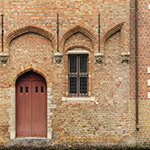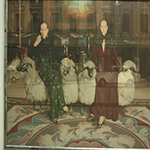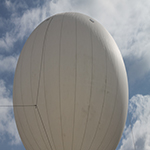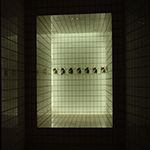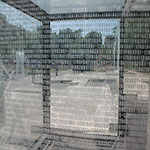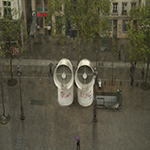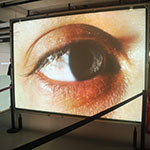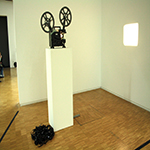H10 Universitat
Conference Room: Catalunya
Ronda Universitat, 21, 08007 BarcelonaConference program
- March 27, 2015
- 08:30 - 09:00Participants Registration (Registration Desk - Catalunya Conference Room)
- 09:00 - 09:30Welcome and Opening Remarks
- 09:30 - 10:30Opening Workshop: From Crisis to Prosperity: Paving the Way to the Future of Europe
- 10:30 - 11:00Coffee Break and Snacks
- 11:00 - 13:00Panel 1: The European Union and the Politicization of Europe: EU from Vision to Institutional Construct and Functioning
- 13:00 - 14:30Lunch – Urban Restaurant
- 14:30 - 16:30Panel 2: Narratives on Europe and the Inside/Outside Nexus: Perception and Reception of Europe in Literary, Artistic and Intellectual Narratives
- 16:30 - 17:00Coffee Break and Snacks
- 17:00 - 19:00Panel 3: Taking Euroscepticism Seriously: Parties, Elections and Populist Discourse in Europe
- 19:00 - 19:45Welcome Drink Out
- 19:45 - 21:00Optional Social Dinner Out in Barcelona
- March 28, 2015
- 09:30 - 11:30Panel 4: Urban Transformations, Transition and Change in European Urban Image Construction
- 11:30 - 12:00Coffee Break and Snacks
- 12:00 - 13:00Panel 5: Europe and Identities: Insiders - Outsiders, Movement and Migration in Europe (Section One)
- 13:00 - 14:30Lunch – Urban Restaurant
- 14:30 - 15:30Panel 5: Europe and Identities: Insiders - Outsiders, Movement and Migration in Europe (Section Two)
- 15:30 - 16:00Coffee Break and Snacks
- 16:00 - 18:00Panel 6: Domestic Political Processes – Form Democratic Deficit to the Impact of Europeanization
- 18:00 - 19:00Concluding Remarks and Discussions
- 19:00 - 20:30Optional Social Dinner Out in Barcelona
- March 27, 2015
The 5th Euroacademia Conference ‘Europe Inside-Out: Europe and Europeanness Exposed to Plural Observers’

- Conference Description
- Participant’s Profile
- Registration and Fee
- Social Activities and Publication
- Important Dates
- Venue and Directions
- Conference Program
- Opening Workshop
- Panel 1
- Panel 2
- Panel 3
- Panel 4
- Panel 5
- Panel 6
The 5th Euroacademia Global Conference
Europe Inside-Out: Europe and Europeanness Exposed to Plural Observers
27 – 28 March 2015, Barcelona, Spain
4* Universitat Hotel
Conference Description:
Europe became in the 20th century an elaborated yet contested notion as a particular field of European studies emerged and extensive and diverse research was directed recently towards an intensified search for what Europe is about. The creation of the European Union made things even more specialized and increased the stake of methodological rigor as more and more Europeans are affected by the decisions taken in Brussels. The number, diversity and quality of research projects focused on European issues is unprecedented, yet, as it is usually the case with specialization it gradually led to discursive communities that rarely meet and debate their approaches in open floors together with peers from other continents, academic traditions and cultures. It is the aim of this conference to build a bridge among specialists from different regions, academic traditions and cultures that share a common interest in studying and addressing Europe as a reflexive concern.
The 5th Global Conference ‘Europe Inside-Out: Europe and Europeanness Exposed to Plural Observers’ aims exactly to refresh a broader approach and understanding of Europe by enlarging the platform of regular conferences and workshops for a wider arena of participants and disciplinary backgrounds in order to put on stage a worldwide monadology for such concerns. The conference aims to enable critical alternatives to the disciplinary orthodoxy by creating a framework for interaction and dissemination of diversity that has to become once more a European trademark. The conference also aims to become a constructive confrontational space for alternative methodologies, provocative puzzles, inter, multi and trans-disciplinary understandings for wider and also for thinner specialized issues of concern on or about Europe of today. In a way, such a conference aims to become a moment of return to the European specificity of critical self-understanding through dialogue and debate with all the discursive or narrative traditions that directly or indirectly constitute its self.
What is Europe and its place in the world? Is there something particular that sedimented in time and through a controversial history a European way? How does Europe see itself and how do others see it? Is Europe inclusive or club-based exclusive? Is Europe becoming a normative power or just envisages itself as one? Is the European multiculturalism a fact or an ideal? Is the European Union a reflection of Europe or an appropriation of it? These are just few questions out of an enormous space for inquiry that are to be addressed and confronted within the topic of the conference.
The 5th Euroacademia Conference ‘Europe Inside-Out: Europe and Europeanness Exposed to Plural Observers’ became a regular event to take place in every year in a different European location. After four successful editions – the first one in Vienna, the second in Paris, the third in Prague and the fourth in Athens – Euroacademia moves the stage of reflection, sharing, dialogue, debate and research dissemination on Europe to Barcelona, one of the most amazing cities of Europe. Join us!
Participant’s Profile
The conference is addressed to academics, researchers and professionals with a particular interest in Europe, Europe related and European Union topics from all parts of the world. As the nature of the conference is intended to be multidisciplinary in nature, different academic backgrounds are equally welcomed. Cultural approaches, political studies, critical studies, out of mainstream approaches and artistic/literary contributions to the better understanding of Europe in its past present and future dimensions are all equally welcomed. Euroacademia favors alternative and innovative thinking proposals and non-mainstream methodologies.
Post-graduate students, doctoral candidates and young researchers are welcomed to submit an abstract. Representatives of INGOs, NGOs, Think Tanks and activists willing to present their work with impact on or influenced by specific understandings of Europe and/or the European Union are welcomed as well to submit the abstract of their contribution.
Abstracts will be reviewed and the participants are selected based on the proven quality of the abstract. The submitted paper for the conference proceedings is expected to be in accordance with the lines provided in the submitted abstract.
Registration and Fee
Registration is now closed
The Participation Fee Includes:
- the registration fee
- participant’s package with all the materials for the conference
- inclusion in the conference proceedings published volume
- a copy of the electronic volume
- access to Euroacademia discussion group and newsletters
- discounted rates for participation in the future Euroacademia conferences
- coffee brakes and refreshing drinks for all the duration of the conference
- a 3 course lunch on 27rd of March 2015 at the 4 stars Urban Restaurant
- welcome drink with snacks on 27th of March 2015
- a 3 course lunch on 28th of March 2015 at the 4 stars Restaurant Urban
- certificate of attendance
- optional social program
Unfortunately, Euroacademia has no available funds for covering transport and accommodation to/in Barcelona. Participants are responsible for securing funding to cover transportation and accommodation costs during the whole period of the conference. Official invitation letters can be sent by Euroacademia to the financing institution to confirm the selection and participation in the conference upon request.
A specific spot in the conference program will be dedicated to social networking and therefore all the participants interested in setting or developing further cooperation agendas and prospects with other participants will have time to present and/or promote their project and express calls for cooperation.
A specific setting (Social Corner) for promotional materials connected with the topic of the conference will be reserved for the use of the participants. Books authored or edited by the participants can be exhibited and promoted during the whole period of the conference and can also be presented within the conference package based on prior arrangements.
An optional dinner and a social event will be organized for the second evening of the conference in a typical Catalan cuisine restaurant as optional program for the willing participants. The social dinner will be held based on participant’s confirmation and it costs around 25 Euro to be covered by participants.
Publication:
Selected papers will be published in an electronic volume with ISBN after the confirmation of the authors and a double peer-review process based on an agreed publication schedule. All the papers selected for publication should be original and must have not been priory published elsewhere. All participants to the conference will receive a copy of the volume.
Specific selected papers will be also published in CEJISS (Central European Journal of International & Security Studies)
About CEJISS
Formally launched in January 2007, CEJISS is designed as a double-destination scholarly bridge. The first bridge was constructed with Central Europe (Czech Republic, Hungary, Poland and Slovakia) in mind, focusing on increasing the audience for Central European scholars. In this regard, CEJISS is making a substantial impact as each issue attracts attention in some 45,000 people in nearly 160 countries. However, CEJISS is not Central European centric and invites scholars from around the world to contribute. This has meant that just as Central European scholars now have an easier time gaining a footing outside of the region, so international scholars also have an easier time getting in and making an impact here. With a mere two decades separating our times from the ‘darker’ Cold War years, CEJISS aims to contribute English language perspectives to the peoples of Central Europe and give the latter the amplification their research deserves.
| Important Dates | |
|---|---|
| 1st of February 2015 | Deadline for Submitting Panel Proposals |
| 25th of February 2015 | 300 words abstracts and details of affiliation |
| 27th of February 2015 | Latest notification of acceptance |
| 2nd of March 2015 | Sending the Registration Form |
| 5th of March 2015 | Payment of the conference fee |
| 15th of March 2015 | Sending the draft paper to be uploaded on the conference website |
| 18th of March 2015 | Publication of the conference program and uploading the draft papers on the website |
| 27th of March 2015 | The conference commences at 9.00 am |
Venue and Directions
The conference will take place in the conference premises of the exclusive 4 stars H10 Universitat Hotel, centrally located in the heart of Barcelona, easily accessible in the historic center and within a walking distance from many major cultural attractions. H10 Universitat Hotel is a four star property located in a building that dates from the end of the 19th Century, perfectly restored, with a modern interior design just 100 m away from Plaza Catalunya and very near the Gothic neighborhood and Paseo de Gracia.
H10 Universitat Hotel
Ronda Universitat, 21, 08007 Barcelona, Spain
Tel: (34) 93 342 78 50
Fax: (34) 93 302 49 07
email: [email protected]
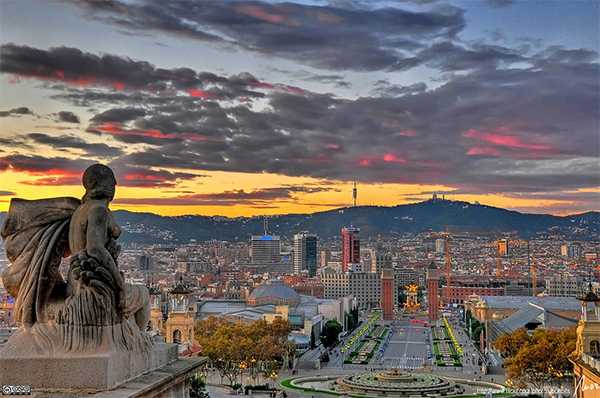
Barcelona is one of the most amazing destinations and one of most beautiful cities in Europe. It is and has been a major attraction due to its long and important history as the heart of Catalan country, but also due to its impact on the modern world, its astonishing architecture and amazing art. Many cities have great museums yet Barcelona is an inspiring museum in itself.
Barcelona is the home of the architectural genius of Antoni Gaudí, the father of Barcelona’s Modernist architecture that authored masterpieces all over the city: the unusual Casa Batlló, the magical Park Güell, his landmark Palau Güell, beautiful La Pedrera, the breathtaking Sagrada Familia. Barcelona is defined by its absolute architectural mastery, historic streets, beautiful beaches, incredible art scene that includes the Picasso Museum,the Fundació Joan Miró, the beautiful Palau de la Música Catalana, the Gothic Quarter with its Cathedral of Barcelona, and much much more.
Barcelona is also defined by nice shopping streets and markets, beautiful beaches, great restaurants and comfortable outdoor cafes. Barcelona’s food culture pushes all the right buttons of seasonality and tradition. It is a place to take in and enjoy.
See full information about the conference Location & Map:
HERE
Conference participants are responsible for arranging the accommodation and travel.
Conference Program
The Conference Program is available below by pressing the corresponding tabs for each panel.
The Conference Agenda is available on the right sidebar.
Gerhard Eichweber (Silva Plan / Value Group, Switzerland)
From Crisis to Prosperity: Paving the Way to the Future of Europe
Abstract:
Many people coincide in the observation: The World is in Crisis. And Europe, rather than being the example lighthouse, which it could be, is also paralyzed. There are more and more voices blaming wrong policies and foreign interests for the never ending problems of their societies. But: do they know the deeper roots of the problem? Do they have the solutions? Democracy is at stake when open societies are in retreat. Does this have its reasons in wrong theories and counterproductive policies?
“Different is better” as the underlying concept of innovation and entrepreneurship helps companies and entire regions out of crisis and towards stable success, economic development full employment, functioning social security, healthy state finances and prosperity for all. Should not – with diversity as the most important, thus, vital element of entrepreneurship and innovation as motors of employment and prosperity – regional, ethnic and cultural dversity rather than convergence be pushed and receive all the attention and funding?
Currently, egalitarian policies of “convergence” prevail over as important EU concepts as “EU-regio”- and “Interreg”-Programmes. What does the recognition of the importance of qualitative aspects and diversity – rather than mere quantitative criteria – mean for Europe’s societies, policies and related communications required? What must change in public understanding of science, economy and democracy, in order to understand and overcome the paralyzing influence of misleading paradigms? How can the increasing repression of diversity, e.g. of human values, attitudes and preferences be stopped and reversed? How can better and positive understanding of the riches of Europe’s internal ethnic and cultural diversity be lead to Europe’s being a “powerhouse” of economic and social examples? How can Europe’s hitherto unseen long period of 70 years of peace be turned into a lighthouse paving the way for its own internal progress and for others, as the pattern of peaceful prosperity to be followed and defended?
By opening the Euroacademia Conference on Europe and Europeanness with a workshop, and by, thus, pro-actively furthering the advantages of Euroacademia’s typical multidisciplinary mix of conference-participants into an experience of reciprocal empowerment, Euroacademia seeks to further open the horizons, role and impact of critical and off-mainstream studies presented.
The workshop will be opened with a speech on findings regarding economy and, moreover, on the role of a “culture” of positively dealing with qualitative diversity and distinction. After putting currently prevailing paradigms regarding economy and economic policies, in question, I will highlight, what this can mean as a “categorical imperative” of changing the understanding of what hinders societies in achieving lasting prosperity and peace.
Eventually, by opening the discussion and inviting all participants to add their views on the elements of subtle changes needed to harmonize and strengthen Europe in a non-egalitarian way, in order to become, with its unprecedented example of both prosperity and peace, the example for its parts and for its neighbors and other world regions to strengthen their self-determined independence through prosperity and peace as result of truly sustainable policies.
The European Union and the Politicization of Europe: EU from Vision to Institutional Construct and Functioning
Chair: Emanuel Crudu (Euroacademia, Paris and Brussels)
- Eclipsing Atlantis: Economic Ideas of Trans-Atlantic Multilateralism in Monetary Affairs and Trade and the Genesis of European Integration (1942-1950)Central to the paper is the search for the economic ideas that have been dominant in this process of institution building. The paper is based on both archival research (focused on multilateral negotiations), and in-depth assessment of the ‘battle of economic ideas’ that fuelled the feverish testing of institutional arrangements for trans-Atlantic and European cooperation in the laboratory of western multilateralism during the 1940s.Mathieu Segers, Faculty of Humanities, Utrecht, The Netherlands
- The Institutional Balance: A Phantom Concept of EU Constitutional LawOur argument is that, in its current state, the concept of institutional balance serves both reactive and transformative functions within the EU law. It emphasises the necessity to periodically check and adjust the power distribution architecture in response to new challenges of the EU evolution process.Oleksandr Moskalenko, University of Turku, Finland
- Democratic Legitimacy in the Era of Fiscal IntegrationWhile several countries still struggle to return to sustainable growth and Euroscepticism has shown its strength during the 2014 European Elections, Europe is slowly advancing on the path of fiscal integration. This paper reassesses how legitimacy is provided when economic policy coordination becomes a central priority and why the ensuing fiscal integration constitutes a “genetic change” for the Union.Francesco Nicoli, Trento University, Italy
- Redefining the Meaning of Public Sphere: Leaders, Citizens, StatesAbstract: Believing in the European Vision is more than an imperative necessity. More than ever we should bring attention to the meaning of cooperation and the importance of leaders. To improve the rationality of public decisions we should put again in the middle of the discussion the role of the leaders and their responsibility to their citizens. So, one of the most important questions in our days is the meaning of Europe and how Europe can resist to the growing phenomenon of crisis in many countries of its entity. The main problem is the way that those countries understanDora Papadopoulou, Forschungsinstitut für Philosophie, Hannover
- The Role of the EU in Setting Global RulesThe paper analyzes the role of the EU in agenda and rule setting in international organizations which are designed to address global social and economic challenges. It also touches upon issues related to cooperation between the member-states with the EU which might precede its performance on the global arena.Anna Tsibulina, Moscow State Institute of International Relations, MGIMO, Russia
Narrating Europe and the Inside/Outside Nexus: Perception and Reception of Europe in Literary, Artistic and Intellectual Narratives
Chair: Dana Domsodi (Scuola Superiore Sant’Anna, Pisa, Italy)
- Narrating Europe from the Outside – The Double Peripheral Perspective in Abraham B. Yehoshua’s Novel Five SeasonsIn my paper I will exemplify this complexity based on the novel Five Seasons (Molcho) by Abraham B. Yehoshua. The reading of Molcho’s voyages to Europe and his struggle with “European culture” in Israel will enable me to analyze Molcho’s perception of Europe.Judith Müller, Ben Gurion University of the Negev, Israel
- Europe as Viewed from Asia [Pakistan] in the Poetry of Perveen Shakir (1952-1994)This explores Bhabha’s postcolonial theory of Hybridity (1994) where he says diverse cultures when meeting deconstruct, what Said calls binaries of colonial discourses (1978;1993).Katherine Peters, Faculty of Arts, Design and Technology, University of Derby, Derby, United Kingdom
- Colin Thubron’s Journey into Cyprus and the Literary Depiction of Cyprus as a Non-European CountryThroughout his travelogue Journey into Cyprus (1975) Colin Thubron insisted on the negation of a pro-European feeling for Cyprus. After crisscrossing the island in 1972, he presented Cyprus as a conglomerate of cultures and civilizations.José Ruiz Mas, University of Granada, Spain
- French Critical Theory and the Culture Wars of the U.S.This paper unpacks the cross-pollination of French critical theory with the culture wars of the U.S.—a seminal time in the U.S., post-1968, after which the embattled Left retreat into academia.Andrea Liu, UDK Berlin/ Counterhegemony: Art in a Social Context
- Christianity, the Secular and European IdentityThis paper will investigate this response to the imminent question of Europe and permit an opportunity to re-evaluate the relationship between Europe, Christianity and the secular, and open new possibilities for a Europe to come.Ian Morrison, Department of Sociology, Anthropology, Psychology and Egyptology, The American University in Cairo, Egypt
- The Fallen of ‘The Eldorado’ of EuropeMy paper will clarify manifestation of the fallen of Europe idealistic image. No doubt, Europe tragically fails to satisfy the wills of Moroccans. My paper will focus on immigrant from Western Sahara as a case study.Slimane Douih, University of Sidi Mohamed Ben Abdellah, Fez, Morocco
Taking Euroscepticism Seriously: Parties, Elections and Populist Discourse in Europe
Chair: Catherine MacMillan (Yeditepe University, Istanbul)
- Send in the Clowns? Carnivalesque Populism in the UK Independence Party and the Five Star MovementThe paper discusses the rise of two Eurosceptic populist parties , the UK Independence Party in Britain and the Five Star Movement in Italy from the point of view of Bakhtin's concept of the carnivalesque.Catherine MacMillan, Yeditepe University, Istanbul, Turkey
- Electoral Euroscepticism and the Economic Crisis: Evidence from a 100-Elections Panel Study Across EuropeIn contrast with previous studies, which tended to de-emphasize the impact of economic performance in determining the success of Europescptic forces, the results of this paper detect both direct and mediated impact of the economic crisis and of bailout measures on the electoral success of hard-line Eurosceptic parties.Francesco Nicoli, Trento University, Italy
- (Re)Formation of Attitudes towards the European Integration: The Case of the Party-based Euroskepticism in the NetherlandsThis research aims to shed light on future analyses on the increasing far right and strengthening Euroscepticism in the other European countries by evaluating the reasons and most probable end results of this processes.Elcin Karana and Sevilay Kahraman, Middle East Technical University, Turkey
Urban Transformations, Transition and Change in European Urban Image Construction
Chair: Gerhard Eichweber (Value Group, Switzerland)
- Brazilians’ Houses: Assertion of an Architectural Identity in Northern PortugalEverybody has the right to be included and participate in the valorization of this patrimony, according to their choices, as a way of ensuring the right to freely take part in cultural life. Hence the importance of promoting and deepening the participation of citizens in the preservation of this patrimony.Alda Neto, University of Porto, Portugal
- Making it Medieval in Modern Catalonia: Escaping Sub-Nation Status by Creatively Employing a Proto-National PastThe proposed paper will illustrate how Barcelonans and their Catalan compatriots live within a very active fabric of medieval and medievalizing architecture, social ritual, and cultural memory, a past, creatively imagined and reconstructed, explicitly used to promote action in the present.Michael Vargas, Department of History, State University of New York at New Paltz
- European Urban Image Construction in US Geography Textbooks and Multimedia Video SupplementsThis paper attempts to reveal some recent patterns in visual representations of European urban landscapes in two kinds of geography textbooks used in North American universities.Dmitrii Sidorov, Department of Geography, California State University Long Beach
- The Paris Home and European Space ca. 1945-1965This paper, looks at the home in Paris in the two post-war decades as a particularly propitious example of the varying, and indeed conflicting or contradictory, understandings of what Europe and Europeanness have been taken to mean.Hugh McDonnell, Independent Scholar
Europe and Identities: Insiders – Outsiders, Movement and Migration in Europe
- Insiders as Outsiders: European Women in Binational MarriagesUsing Germany as one example, while also reflecting on the broader European perspective, this paper explores how European women—nominally members of the in-group—who are married to foreigners, have become legal, cultural and social outsiders.Julia Woesthoff, History Dept., DePaul University, Chicago
- An Analysis of Return Migration Using Binary Models: The Romanian PerspectiveThe paper explores the database from Statistical Institute of Spain on Spain’s migrants from the perspective of return migration.Elena Maria Prada, Bucharest Academy of Economic Studies
- An Alternative Imagining of Europeanness: Turkish-Dutch MigrantsThis study aims to present an alternative imagining of Turkish and European identities in the context of Turkish migrants in the Netherlands. How inclusion and exclusion function in their adaptation process is the main focus.Guldeniz Kibris, Leiden University, The Netherlands
- Turkey as a Builder of Europe: Perspectives From Memory and IdentityAbstract: Collective memory does not come into being spontaneously. It is cretaed and mainteined by collective institutions and thenaction of each and everyone. Europe, seen as s political project designed to transcend nations, faces the challenge already encountered in the past when the nations were being built. And also, collective memories mould social gruops, genereations and nations and constitute identity. Such memories can refer to real events but also to myths.In this context when you look at the Europe's borders you can see that it is identified sometimes historicaErhan Akdemir, Department of International Relations, Anadolu University, Turkey
Domestic and Regional Political Processes – From Democratic Deficit to the Impact of Europeanization
- Public or Private Actors: Does it Change Anything to the Europeanization of Welfare? A Comparison across Wallonia Region (BE), Rhône-Alpes (FR), and Lombardy(IT)We investigate the implementation of the 2007 – 2013 ESF Employment Program in three different regions: Wallonia (Belgium), Rhône-Alpes (France) and Lombardy (Italy). These regions are characterized by different levels of decentralization, and different types of public-private cooperation. We focus on continuous vocational training and social assistance.Josua Gräbener, Institut d'Etudes Politiques de Grenoble, FranceSbaraglia Fanny, Université Libre de Bruxelles, Belgium
- A Multidimensional Analysis of Democratic Deficit by Components with Application in Albania during 2005 – 2014Democratic deficit around the world is a random field in the sense of Modern Probability Theory. Any democratic state may potentially suffer from democratic deficit. Trust in political institutions (government, parliament, political parties) displays fluctuations over time and persistent contrasts among different branches of government within each specified democratic state.Eniel Kolaneci, PhD Candidate, Albania
- Revision of the Initial Assumptions and the Historical Choices the Field of EU Foreign PolicyThis article aims to revise the historical choices in the field of the EU foreign policy and to answer did /or how did the EU foreign policy development contribute to the EU today.Dunja Duic, Department of European Law, Faculty of Law in Osijek, Croatia
- The European Union Model for the Albanian Europeanizationhe paper will emphasize how sociocultural, political and international cooperation and development are major prerequisites for achieving successful democracy and effective policies. The aim of this paper is to analyze the Albanian europeanization process through the EU standards.Irna Peshkepia, International Relations Department at Kristal University, Albania












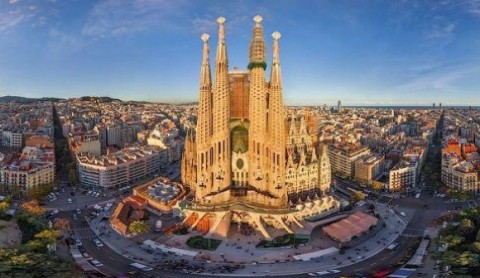
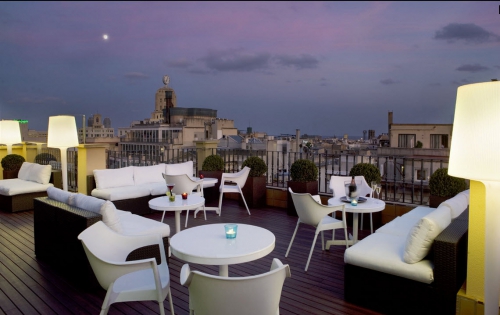
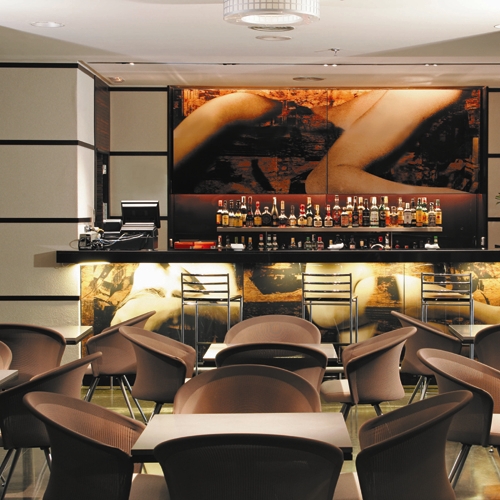
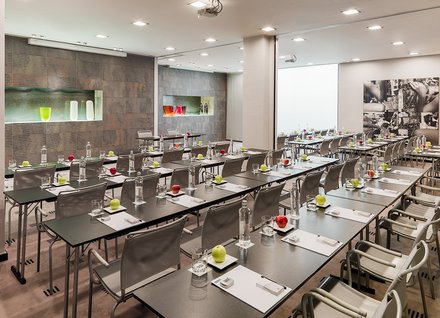

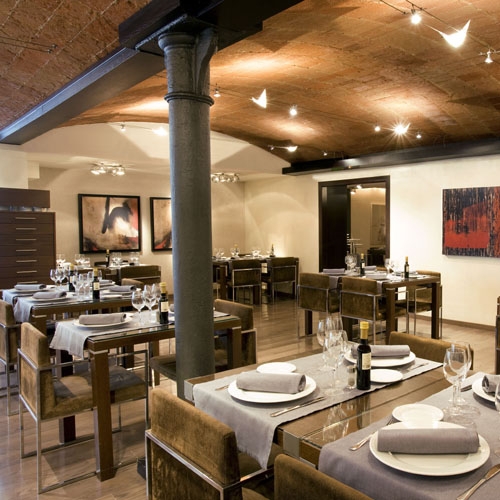
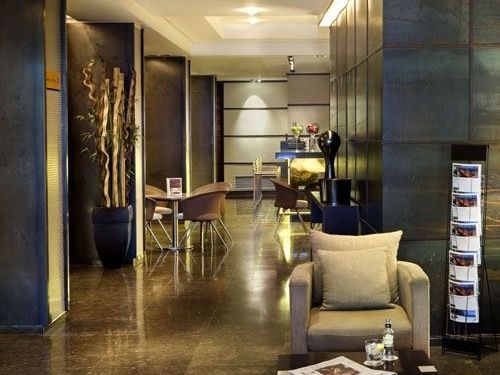
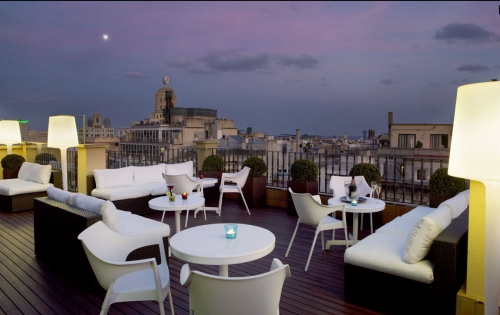
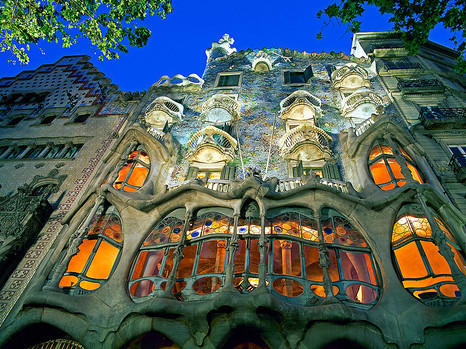





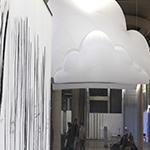
![Europe as Viewed from Asia [Pakistan] in the Poetry of Perveen Shakir (1952-1994)](http://euroacademia.eu/wordpress/wp-content/uploads/2013/11/IMG_7715.jpg)
